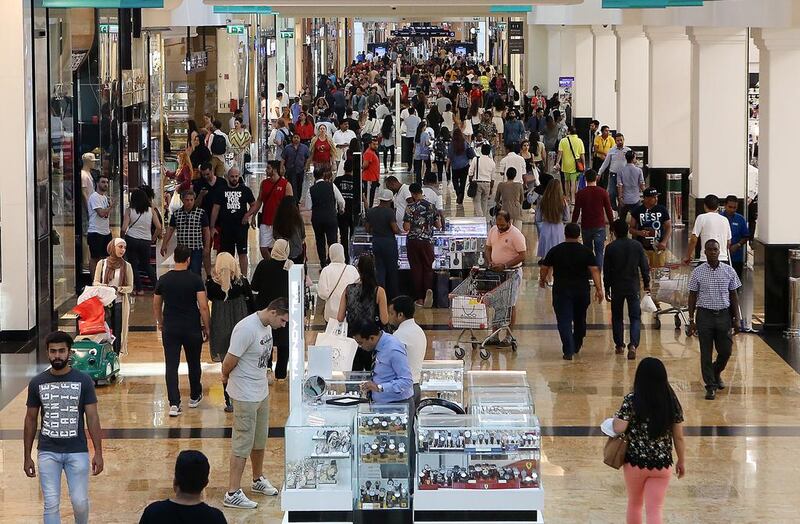A key gauge of Dubai's non-oil economy slipped slightly in September but still indicated growth in-line with the survey's historical average.
The Emirates NBD Dubai Economy Tracker Index dropped to 55.2 in September from 56.3 in August. A reading of below 50 indicates that the non-oil private sector economy is in decline while a reading above 50 suggests that it is expanding.
___________________
Read more:
[ UAE sees strongest third quarter of non-oil activity in two years ]
[ UAE central bank withdrawal of excess cash from banking system signals recovery, analysts say ]
___________________
"The September survey points to a continued solid expansion in Dubai's economy, with retail and wholesale, trade and construction data particularly encouraging," said Khatija Haque, head of Middle East and North Africa Research at Emirates NBD.
"Year to date, the Dubai Economy Tracker index has averaged 56.3, markedly higher than the average for the same period last year, which supports our view that Dubai's GDP growth is likely to accelerate this year."
Jobs continued to be created in September for the seventh straight month, according to the survey, as companies hired more staff at the fastest pace since April. Despite that, the rate of growth of new jobs was below the survey's historical average.
Those who were polled for the survey reported growth of new business for the nineteenth straight month, citing improving economic conditions and better marketing techniques.
When it came to input costs, those polled indicated that input price inflation eased in September.
The UAE’s non-oil economy, which has been subject to lower growth in recent years, is set to get a boost from a pick-up in government spending ahead of Expo 2020.
Economists also say that an improvement in the global economy is aiding tourism and real estate. The global economy is forecast to grow 3.5 per cent this year before accelerating to 3.7 per cent in 2018, the best rate since 2011, according to the OECD.





